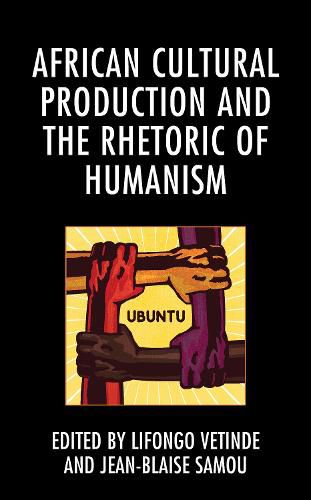Readings Newsletter
Become a Readings Member to make your shopping experience even easier.
Sign in or sign up for free!
You’re not far away from qualifying for FREE standard shipping within Australia
You’ve qualified for FREE standard shipping within Australia
The cart is loading…






A broad range of cultural works produced in traditional and modern African communities shows a fundamental preoccupation with the concepts of communal solidarity and hospitality in societies driven by humanistic ideals. African Cultural Production and the Rhetoric of Humanism is an inaugural attempt to focus exclusively and extensively on the question of humanism in African art and culture.
This collection brings together scholars from different disciplines who deftly examine the deployment of various forms of artistic production such as oral and written literatures, paintings, and cartoons to articulate an Afrocentric humanist discourse. The contributors argue that the artists, in their representation of civil wars, massive corruption, poverty, abuse of human rights, and other dehumanizing features of post-independence Africa, call for a return to the traditional African vision of humanism that is relentlessly being eroded by the realities of postcolonial nationhood.
$9.00 standard shipping within Australia
FREE standard shipping within Australia for orders over $100.00
Express & International shipping calculated at checkout
A broad range of cultural works produced in traditional and modern African communities shows a fundamental preoccupation with the concepts of communal solidarity and hospitality in societies driven by humanistic ideals. African Cultural Production and the Rhetoric of Humanism is an inaugural attempt to focus exclusively and extensively on the question of humanism in African art and culture.
This collection brings together scholars from different disciplines who deftly examine the deployment of various forms of artistic production such as oral and written literatures, paintings, and cartoons to articulate an Afrocentric humanist discourse. The contributors argue that the artists, in their representation of civil wars, massive corruption, poverty, abuse of human rights, and other dehumanizing features of post-independence Africa, call for a return to the traditional African vision of humanism that is relentlessly being eroded by the realities of postcolonial nationhood.